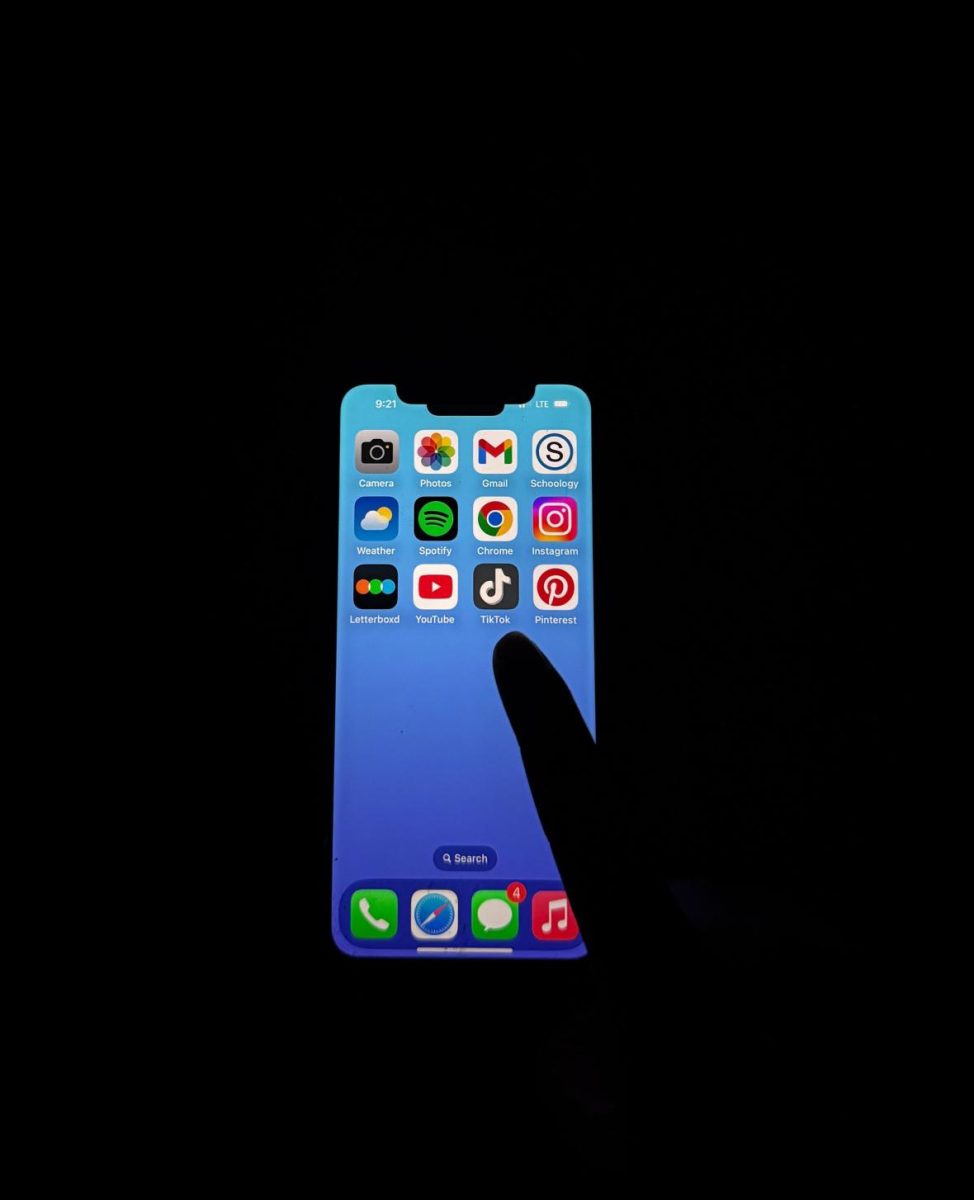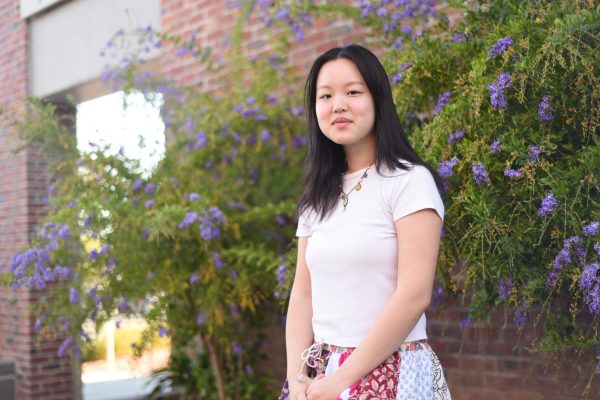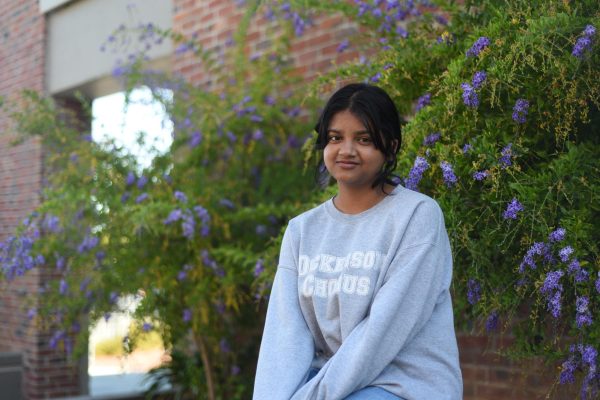The Supreme Court unanimously upheld a federal divest-or-ban law of the social media platform on Jan. 17, stating that the platform’s ties to China through its parent company, Bytedance, posed national security risks and raised concerns regarding violation of First Amendment rights. TikTok became unavailable to U.S. users on Jan. 18 but was reinstated on users’ devices only 12 hours later on Jan. 19, with the app citing the efforts of President Trump for its return. After his inauguration on Jan. 20, Trump signed an executive order to extend the settlement of the app for 75 days. During this time period,the app has been removed from app stores, but users with the app previously downloaded are able to access the app while awaiting a decision on the future of the platform.
With the pending decision on TikTok’s accessibility in the U.S., senior and avid TikTok user Nathan Chiang specifically feels the ban would hinder the efforts of activists present on the platform and the positive impacts they have produced. Chiang, who uses the app daily for entertainment and information on current news, believes the ban would make the country less aware of political issues and current events globally.
“By making it so that an American company needs to own TikTok, it really narrows the perspective of Americans,” Chiang said. “I think it places Americans in an echo chamber of only listening to American ideals, versus the ability for activism. For example, things that are going on in Palestine and Gaza — because the US government is simply more pro-Israel, how are people that are more pro-Palestine supposed to speak up when the platform that it’s on is wholly American?”
Similarly, senior Tanvi Parupalli says she has been able to connect with communities for people of color and see her experience as an Indian-American person reflected and shared by others through TikTok. She deleted the app after the 12-hour ban went into effect, assuming that it was permanently banned, and has been unable to re-download it since. Parupalli says that it served as a distraction and coping mechanism when she faced social anxiety and recognizes the ban would negatively affect the connectivity built on the platform.
“It’s really important to acknowledge that TikTok gives so many people online communities that they may not have access to in real life, so if you can’t find a community on other platforms or in your life, it can be really hard to navigate what you’re going through,” Parupalli said. “There was a community on TikTok of brown creators called ‘Browntok’ where I could just relate to other brown people and their struggles growing up first-generation in the U.S. So I think that lack of community can feel a little isolating for some people, especially the LGBTQ+ community or other people of color.”
However, Parupalli sees the potential for communities to be rebuilt on other platforms such as Instagram. At the beginning of her inaccess to TikTok, she says she found herself reflexively reaching for the app multiple times and began to reflect on its short-form content format and addictive algorithm. After experiencing time off the app, Parupalli says that she would not rejoin TikTok if given the opportunity, since she now recognizes its negative impacts on her life.
“I was 100% addicted to it — to the point where it became a reflex to scroll on Tiktok for a few minutes as soon as I opened my phone, even if I had a different purpose for reaching for my phone,” Parupalli said. “When it was gone, it definitely felt like I had lost something. Because of TikTok, I felt like I wasn’t always present at the moment, and once I lost TikTok, I felt like I could pay more attention to people I was talking with and have more genuine conversations because I’m not on my phone scrolling. Now that I don’t have access to all these random people’s lives and videos, that aspect of comparison isn’t there, so I can just be a more happy individual.”
While English teacher Randy Holaday is not active on TikTok himself, he agrees that the highly addictive nature of the platform impacts his students negatively but believes restricting the usage of social media platforms should not be achieved through a ban enforced by government interference. Rather, Holaday sees the regulations of large social media platforms as a part of a larger political agenda.
“I think there’s a certain amount of fear-stoking in terms of privacy and intelligence, and it’s not like TikTok’s the only foreign social media app that people use,” Holaday said. “So it just seems to me, there’s a certain stoking of nationalism that occurs with the TikTok ban.”
Instead of a ban altogether, Holaday believes protecting youth from the addictive algorithms on platforms like TikTok can be achieved by heightened awareness of social media regulation among parents and guardians. Holaday says his students have been discussing using alternative platforms in response to the ban, showing that the ban would not stop users from staying off foreign-based platforms with potential privacy risks.
“To me, what the government should be doing is putting out studies to figure out what the effects of Instagram and TikTok are on adolescents and educating parents in terms of creating limits for that,” Holaday said. “I don’t like the door that the ban opens where things can be randomly banned for murky motivations. It seems like, ‘This is good for the high schoolers.’ To me that’s virtue signaling. They’re saying that to hide ulterior motivations and so that, to me, is all negative.”
“Those people’s lives have been changed, and by banning TikTok you are killing all these people that need help. I get to complain about it, which I think is privileged, but there’s so many people that are on TikTok who make their living through it and I think it’s devastating.” While Chiang sees the potential for moving to alternative social media platforms, they believe there are aspects of TikTok that are unique to the platform and that would not be able to be transferred to other social media platforms, such as its accessibility in supporting fundraisers created and promoted by TikTok users on the platform for humanitarian causes. Ultimately, Chiang says the real devastation of the ban is not its removal of their entertainment, but of the survival of people who make a living on TikTok.
“I think the people who the ban will really affect are people who have GoFundMe’s or medical issues and they’re going on to TikTok for people to donate to them,” Chiang said. “Those people’s lives have been changed, and by banning TikTok you are killing all these people that need help. I get to complain about it, which I think is privileged, but there’s so many people that are on TikTok who make their living through it and I think it’s devastating.”












